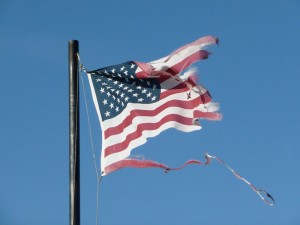 Stifling dissent
Stifling dissent
By Ernest Dumas, September 28, 2017
Whenever Donald Trump in his serial bouts with failure decides he must re-energize his base of white nationalists by doing things like demonizing black athletes who protest discrimination, the mainstream press falls for it and gives him maximum space and time. We’re addicted.
Who could pass up the president’s words at an Alabama political rally: “Wouldn’t you love to see one of these NFL owners, when somebody disrespects our flag, say, ‘Get that son of a bitch off the field right now, out, he’s fired’?” The president called on NFL owners to fire protesting athletes and on fans to boycott games when owners don’t fire them. He disinvited the NBA champion Golden State Warriors from the White House, because black star Stephen Curry had disrespected him by saying he wouldn’t go.
The sentiment is not new. We have heard such mutterings for decades, at least since two Olympians raised their fists in the black-power salute during the national anthem at the 1968 Summer Games. But it is supposed to be a higher-order event when the president of the United States sets out to enforce conformity and suppress disobedience of patriotic customs. A few remember the Enabling Act of 1933, which gave German Chancellor Adolf Hitler and the Reichstag power to disregard the constitution in order to enforce conformity and stop dissent.
But Donald Trump is no Hitler or even Vladimir Putin, however much he might like to be and despite his being the first president to openly urge the suppression of dissent. Presidents James Madison and Woodrow Wilson warned of the dangers of trying to stifle dissent in times of national crisis.
We have been through far more serious threats to the First Amendment than Trump’s ravings, even though he talked emptily last year about changing the laws to roll back freedom of the press and speech. Here in Arkansas, we have our own history of Trumpian suppression, and not merely two centuries of stifling protests of unequal access to justice and civil rights.
It would not be Arkansas if it did not also involve religious freedom, in our own macabre ways of interpreting the establishment clause in matters involving the flag and the Pledge of Allegiance.
Joe Johnson, a farmer who tried to scratch out a living for his eight kids on 39 hillside acres near St. Joe in Searcy County, went into town in 1941 to get commodities to feed his brood. The commissary clerk suspected he was taking the government foodstuff to the hated Jehovah’s Witnesses, who would not salute the U.S. flag. Johnson said he fed only his family. Prove it, she demanded, by saluting the flag. Pearl Harbor was at hand, but war fever was already strong.
Johnson refused and recited Psalm 115 about paying homage to inanimate objects rather than God, the text that formed the basis of the Jehovah’s Witnesses’ belief that honoring inanimate objects violated holy writ. He stalked to the door, took off his hat and made a little speech about Psalm 115. While making gestures with his free hand, Johnson apparently brushed the flag. Not only was he denied food for his family, he was hustled to jail for desecrating the flag. A 1919 act of the legislature made it a crime to desecrate the flag.
His appeal, based on grounds that he was denied the constitutional right to observe his religion, went to the Arkansas Supreme Court. It would have none of it. The majority said he got his just desserts because the demands of a political society, like honoring the flag, overrode his religious freedom.
Everyone could benefit from reading the dissent by the chief justice, Griffin Smith, and his longtime colleague, Justice Tom Mehaffy. Smith said he personally found Johnson’s views about the Bible mawkish, “but while to me it appears vapid, to him it is real.”
While he strongly disagreed with the farmer, the judge wrote, “the fact remains that we are engaged not only in a war of men, machines, and materials, but in a contest wherein liberty may be lost if we succumb to the ideologies of those who enforce obedience through fear, and who would write loyalty with a bayonet. … Witch hunting is no longer sanctioned. The suspicions and hatreds of Salem have ceased. Neighbor no longer inveighs against neighbor through fear of the evil eye.”
Arkansas didn’t much agree with Justice Smith. Jehovah’s Witnesses were mistreated, often violently, for their refusal to honor the flag. The Arkansas Selective Service called Witnesses “lower down than a snake” and ordered them drafted in spite of their conscientious-objector claims. A mob broke up a Witness gathering on Little Rock’s Asher Avenue and cheered when several Witnesses were shot and others were beaten with pipes. Police arrested the remaining Witnesses for disturbing the peace. School kids who refused to recite the pledge of allegiance were expelled. Kathleen Cannon met worse at Cane Hill. The principal beat her with a rubber hose and threw her down the school steps. The Cane Hill School Board praised the principal.
The U.S. Supreme Court, which in 1940 had condoned punishing the Witnesses for disrespecting the flag, reversed itself in 1943 when things in Arkansas and elsewhere got out of hand.
You needn’t worry too much about Trump. Virtually the entire National Football League, including his biggest supporters, repudiated him.
https://www.arktimes.com/arkansas/stifling-dissent/Content?oid=9950358
Photograph: http://kbjake.wordpress.com/2010/11/11/america-worn-and-tattered/
